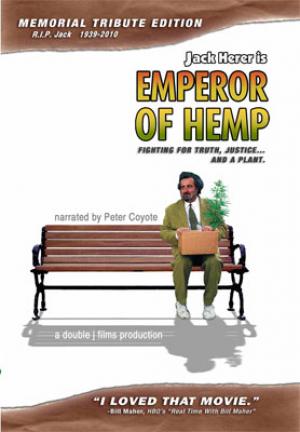
CONCORD – The state Supreme Court effectively reversed Lull Farm owner David Orde’s marijuana conviction Tuesday, finding that a Hollis police officer violated his privacy while trying to serve notice of a lapsed dog license.
The court found that Orde had a reasonable expectation that the deck alongside his house was a private space.
Chief Justice nominee Linda Dalianis was the lone justice to disagree with the ruling by Judge Gary Hicks. The court’s other justices agreed that the marijuana plants police found at Orde’s home and Orde’s subsequent statements to police could not be used as evidence against him.
Orde was tried, convicted and sentenced last year to serve 60 days in jail on charges of manufacturing marijuana. Hillsborough County Superior Court Judge James Barry allowed Orde to remain free on bail pending appeal, so he didn’t spend any time behind bars.
Orde’s son, Andrew Orde, then 19, was also arrested, and he later pleaded guilty to a reduced, misdemeanor possession charge and was sentenced to 30 days in jail.
The Ordes were arrested on the felony marijuana-growing charges July 29, 2008, after Hollis police officer Angel Corrado went to their home at 2 Blood Road to serve Orde with a complaint for failing to license his dog. No one answered at the door, so Corrado walked around to the side of the house, where he spotted 16 marijuana plants growing in pots on a deck.
Police then reached Orde at the farm and asked him to come to the house. Orde admitted to growing the marijuana plants, saying he was “stupid” for doing so, but that police were “ridiculous” to arrest him for it, according to court records.
Orde and his lawyers argued that Corrado had no business walking across his lawn, through a gap in a lilac hedge and up onto his deck, and four out of five Supreme Court justices agreed. While Corrado had a legitimate reason for going to see Orde, the court ruled, Orde also had a reasonable expectation that his deck was private.
Because police violated Orde’s constitutional right to privacy and protection against unreasonable searches of property, the court found, the evidence police found could not be used against him.
“We have previously recognized that certain property surrounding a home, often described as curtilage, deserves the same protection against unreasonable searches and seizures as the home itself,” Judge Gary Hicks wrote.
Because there was no obvious entry to the deck from the driveway or the main door, and the hedgerow screened it from view, Hicks wrote, the deck should be considered a private space. Some federal court judges have “apparently assumed the police could lawfully walk around a person’s property provided they are on the property for a legitimate police activity, such as interviewing a person or serving civil process. We disagree. Permitting police such wide latitude to enter a person’s private property is ‘incompatible with and detrimental to our citizens’ strong right of privacy,’” Hicks wrote, quoting an earlier New Hampshire case.
“Thus, when the police come on to private property to conduct an investigation or for some other legitimate purpose and restrict their movements to places visitors could be expected to go (e.g., walkways, driveways, porches), observations made from such vantage points are not covered by the Fourth Amendment. But other portions of the lands adjoining the residence are protected, and thus if the police go upon these other portions and make observations there, this amounts to a Fourth Amendment search,” Hicks wrote.
Dalianis disagreed, noting the deck was plainly visible from the driveway, and that although there was no clear path to it, there was also no sign warning against trespassing.
Because the discovery of the marijuana amounted to an illegal search, the court ruled, police also had no right to question Orde about it or to use that evidence to get a warrant to search his house.
Orde could not be reached for comment at his farm or his home.
One of his lawyers, Jeffrey Denner of Boston, said he was “very pleased” that the high court agreed with Orde’s take on the case.
“David Orde is a very decent man, a very decent human being. He works very hard,” and tries to contribute to the community, Denner said. “The extent that he smokes marijuana now and then, I don’t think, makes him any less decent.”
“He is very happy that this ordeal is over. He’s very happy that his constitutional rights were vindicated,” Denner said.
The prosecutor, Assistant County Attorney David Tencza, said he agreed with Dalianis’ take on the law.
The Lull Farm website has a section titled, “cannabis corner,” with news on efforts to legalize marijuana and hemp cultivation, and the farm stand sells hemp products.
Andrew Wolfe can be reached at 594-6410 or awolfe@nashuatelegraph.com.
http://www.cabinet.com/hollisbrooklinejournalhollisnews/901316-308/supreme-court-nixes-pot-conviction.html










